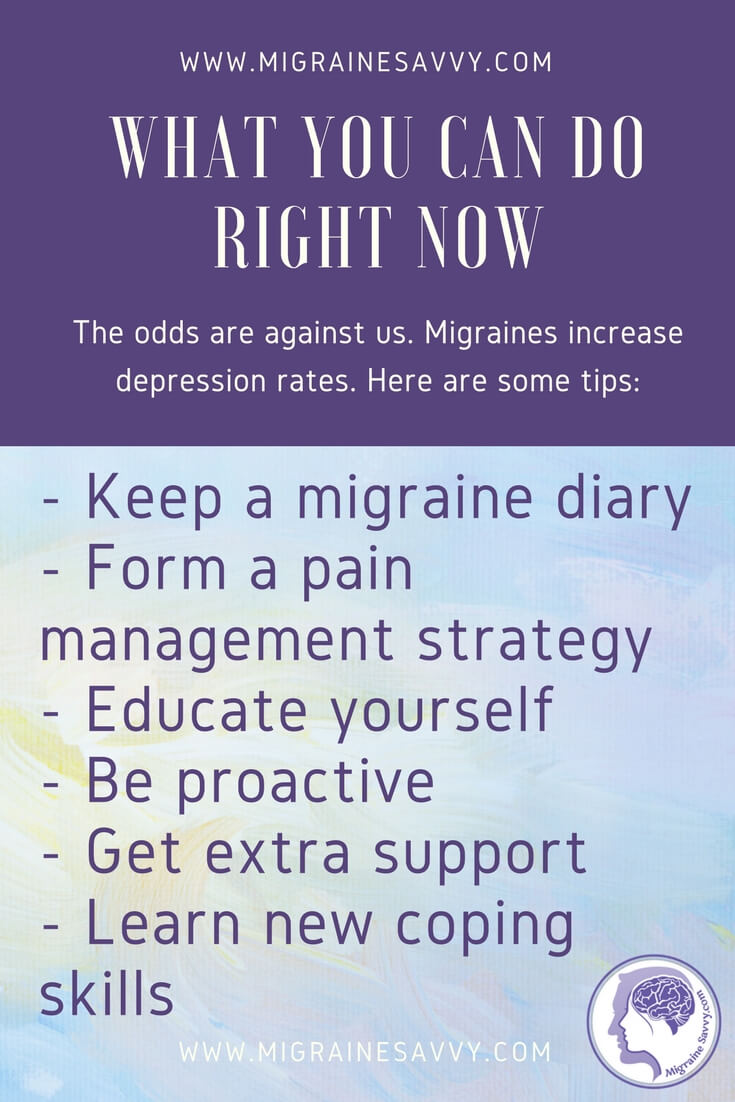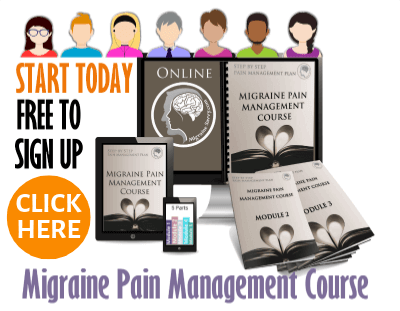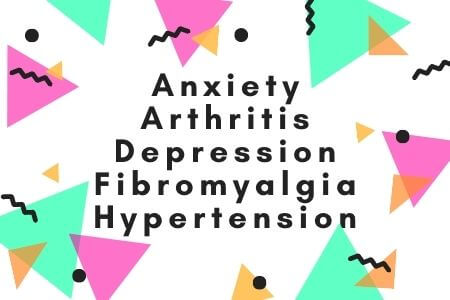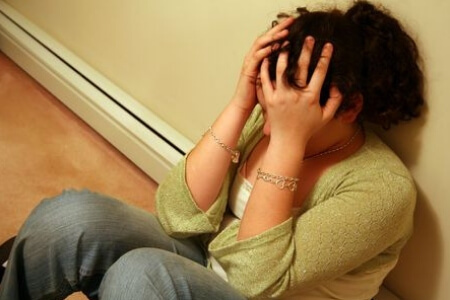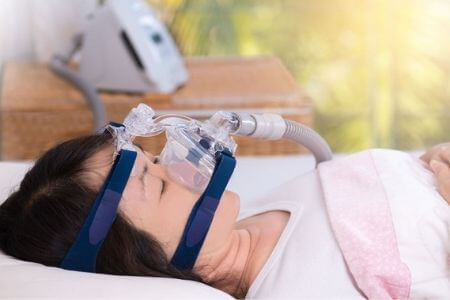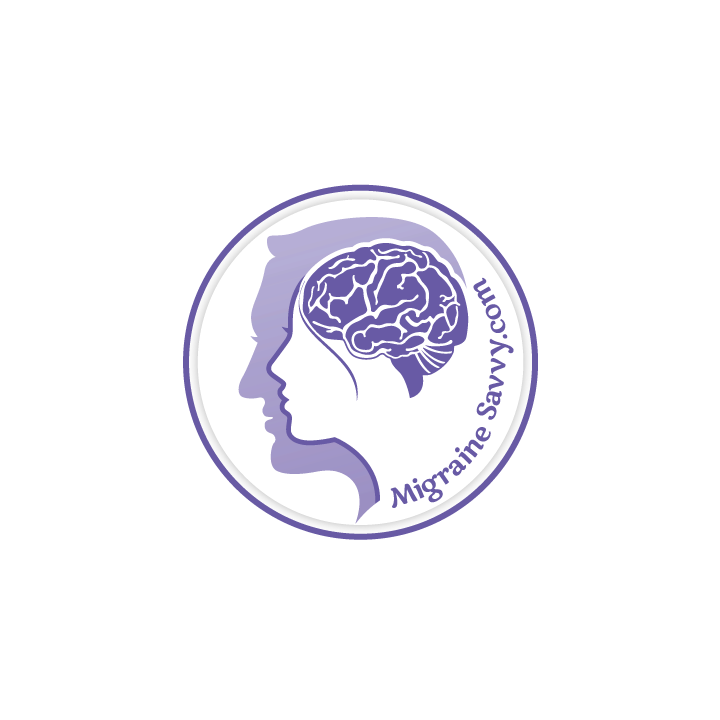- Home
- Associated Conditions
- Migraines Increase Depression
GET THE BEST MAGNESIUM!
My #1. Magnesium Breakthrough by BiOptimizers – combines 7 types of magnesium in a humic/fulvic monoatomic blend to optimize absorption. This is by far the best product I have found so far in terms of results.
The Truth About How Much Migraines Increase Depression
I know that having migraines increase depression. I know this because I was not depressed before I got chronic migraines.
I found a recent study citing this article from the University of Toronto in Canada that has uncovered these disturbing statistics:
There is a higher rate of suicidal ideation (forming ideas around suicide) in younger migraine sufferers who have not yet learned coping skills to deal with this horrible medical condition. Even more shocking is that migraine disease is not yet seen in society as an illness that causes severe disability. (Oct. 17, 2013)
Newly diagnosed migraineurs and those under 30 years old can experience depression six times more
according to a recent study proving that migraines and depression are linked.
So... if you're under 30 you're WAY more at risk. What if you're over 30? Then what?
My #1 Choice in Magnesium Supplements
Depression Is Twice As High In Migraine Sufferers
Here are some more disturbing statistics.
We already know that depression is higher with chronic pain sufferers, however this study shows that depression and suicidal ideation is "twice as high" in migraine sufferers.
Other statistics in the study are:
- 8% men with migraines suffer from depression – compared to 3% without
- Over 12% women – compared to less than 6% without
- Those under the age of 30 had 6 times the likelihood of depression compared to those over 65 years old.
“In a paper published online this week in the journal Depression Research and Treatment, investigators also reported that younger migraine sufferers were particularly at risk for depression.” [1]
Unmarried migraine sufferers were also found to have higher probability of depression. I found these statistics so alarming. I guess I knew the stats for suicide and depression were higher for us migraine sufferers, but now it’s fairly current (2013) and the data foundation was significant.
The Canadian study drew data from a sample of over 67,000 Canadians in 2005, where 6,000 sufferers reported being diagnosed with depression.
This means 1 in 7 women and 1 in every 16 men or from what I can figure out, if my calculations are correct 8.95% overall of those 67,000 experience migraines.
Now the same study showed these stats for the risks for suicidal ideation, meaning the serious consideration of taking their lives:
- Men 15.6% with migraines – 7.9% without
- Women 17.6 with migraines – 9.1% without
Other factors effecting suicidal thoughts among migraineurs were: age, those under 30 years old had 4 times the likelihood compared to those over 65 years old; those unmarried; had lower household income and increased disabilities.
It Is Not Known Why Migraines Increase Depression in Those Under 30
Duh! Could it be the pain or destruction of life?
I know from my own personal experience that I just did not have the right tools or coping skills back then to deal with this chronic migraine disease, forever! The former graduate student and co-author Meghan Schrumm says this:
We are not sure why younger migraineurs have such a high likelihood of depression and suicidal ideation. It may be that younger people with migraines have not yet managed to find adequate treatment or develop coping mechanisms to minimize pain and the impact of this chronic illness on the rest of their lives.
~ Meghan Schrumm
Here's What You Can Do Now
It's important to take care of yourself, now that you know how much more chronic migraines increase depression.
Number one is always to see your doctor for the correct diagnosis.
Get clear on what you have been diagnosed with, so you can treat it effectively.
Keep a migraine diary so you can track changes and have a good record for your doctor.
There is a lot you can do to be proactive in your own treatment. Form a pain management strategy with your Doctor. Here are two articles to help with that:
Educate yourself so you can be proactive and make wise decisions. You have lifestyle choices and more resources available today, yes even the internet, than just a few years ago. Check out my course.
Now you know that migraines increase depression, you can take action. If this does spiral you down into a pit of depression, here's some more help:
Acknowledge and accept that there is currently no cure for migraines. I know this might sound difficult, but the sooner you realize you have a medical condition (like epilepsy) that needs to be taken care of, the sooner you can take the right action steps.
Please take good care of yourself,
More ways I can help right now...
WANT MORE TIPS? Subscribe to my newsletter and follow along on Facebook and Pinterest for all of the latest updates.
ASSOCIATED CONDITIONS Related Articles
How to be more migraine savvy right now...
Migraines Increase Depression Reference:
1. Fuller-Thomson S, Schrumm M, Brennenstuhl S. (2013) Migraine and Despair: Factors Associated with Depression and Suicidal Ideation among Canadian Migraineurs in a Population-Based Study. Depression and Research Treatment. Available [online] at: http://news.utoronto.ca/link-between-depression-and-migraines

